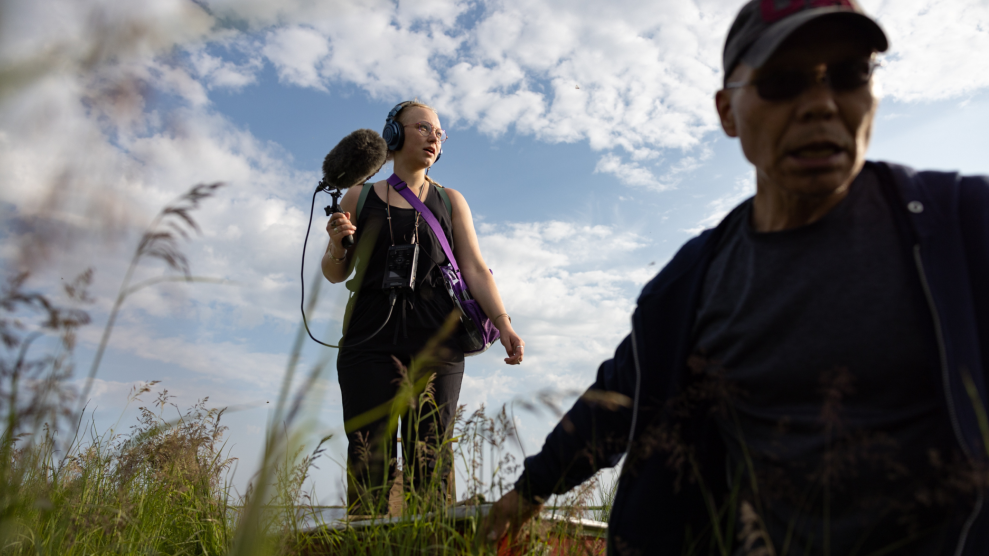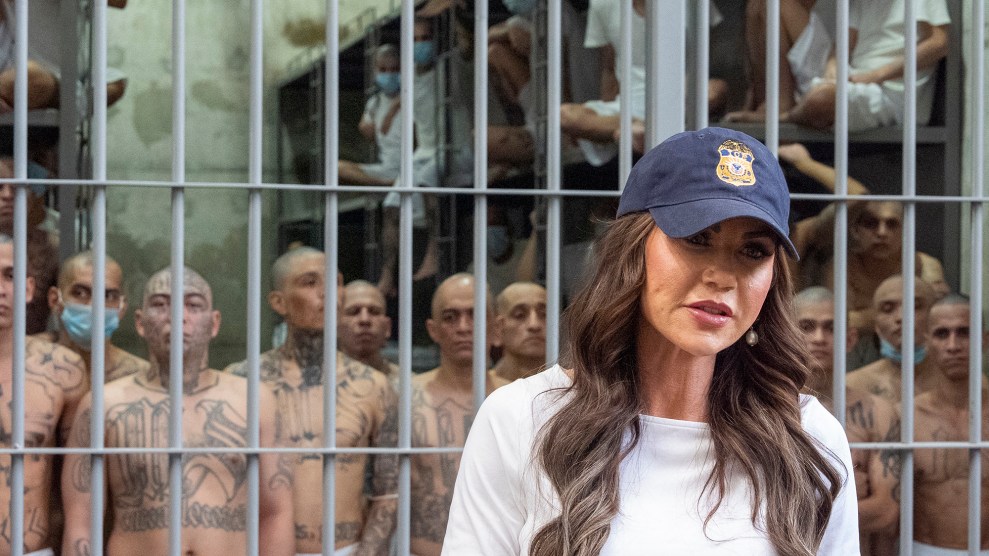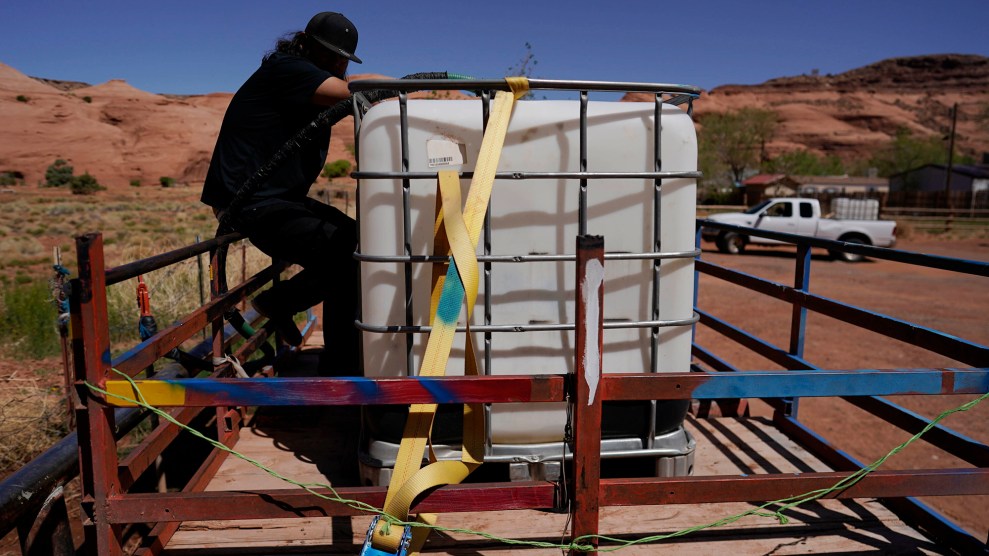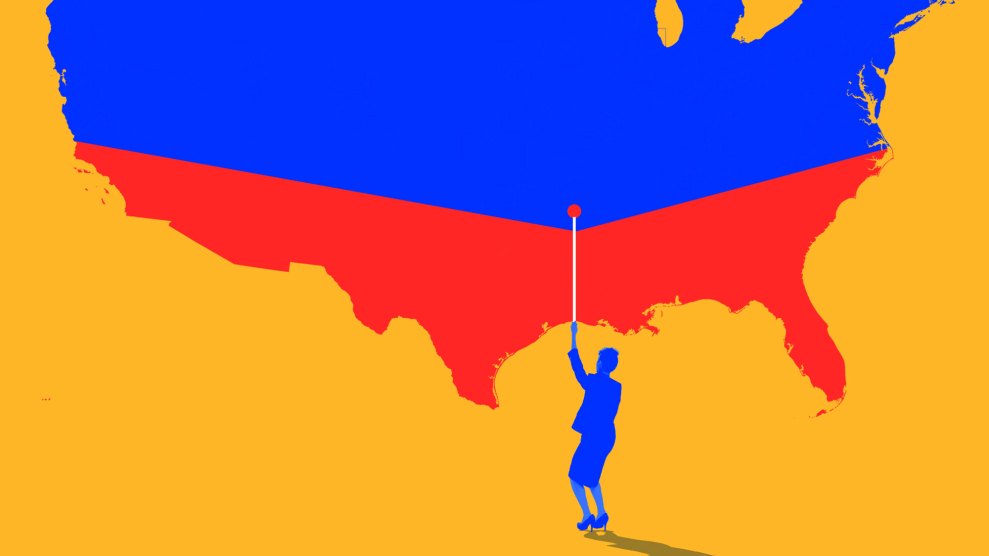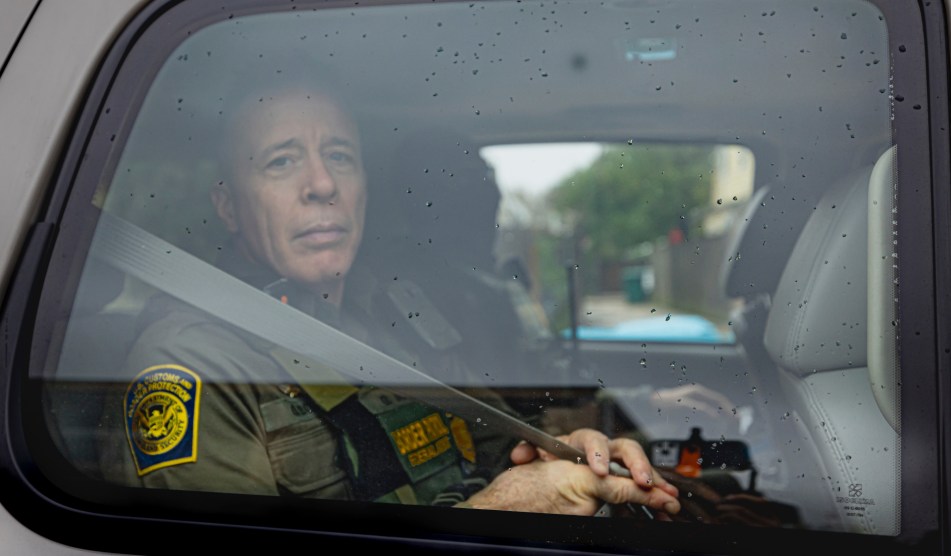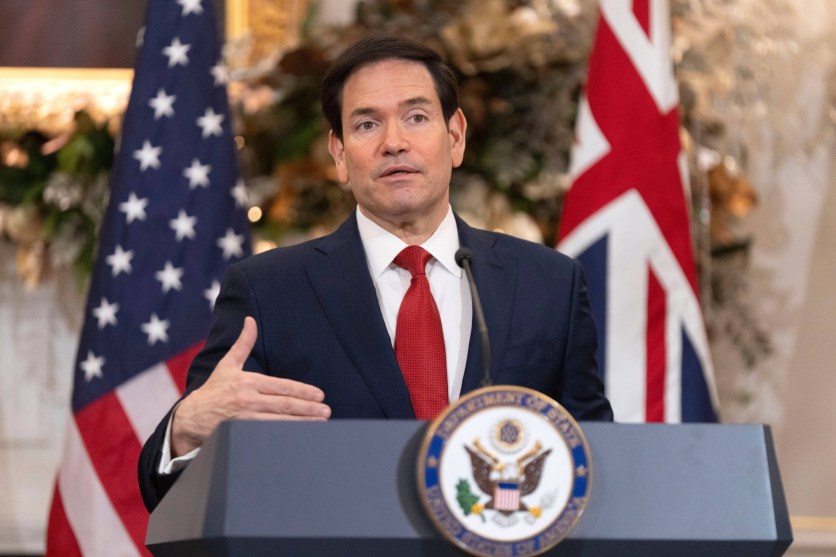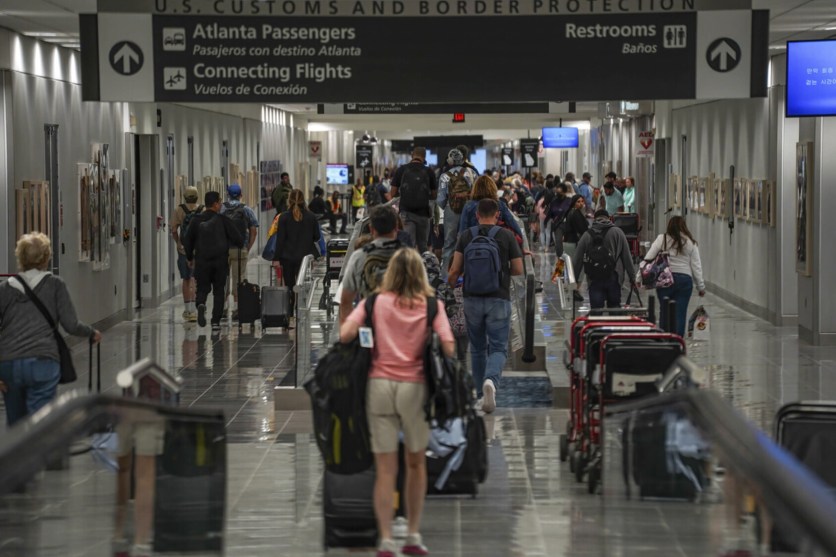
Michelle Lotker
Banjo player and fiddler Jake Blount likes to mess with his audiences: He’ll swap the pronouns in the lyrics of the old-time tunes he covers. He does it with the jovial song “Roustabout,” which contains the lyrics Pretty little girl with a red dress on. Blount often switches “girl” to “boy,” but keeps the dress, a fun way, as he says, “to upset the usual way of doing things.”
Or take “Where Did You Sleep Last Night,” a traditional folk song covered by blues musician Lead Belly in the 1940s and made famous for my generation by Nirvana’s Kurt Cobain. The song begins: My girl, my girl, don’t lie to me, tell me where did you sleep last night? Blount sings My boy, my boy, instead.
Back before the pandemic, he tended to perform the song with fiddler Tatiana Hargreaves, and people would sometimes approach him after a show and ask if the two were dating and had changed the lyrics to her perspective. “I’ve changed the lyrics and just sung this love song—debatably a love song—to a man,” says Blount, who identifies as queer, “and people will still try and force this heteronormative perspective on what the songs are and who’s supposed to be playing them.”
Who we think is supposed to be playing old-time string band music, whose contemporary adherents obsess over authenticity more than in almost any other genre, is based largely on a marketing scheme from the early 20th century. Before then, Black string-band musicians were more commonplace in dance halls—“people used to talk about how you couldn’t run across a group of 15 Black people without finding a fiddler among them,” explains Blount, who has a degree in ethnomusicology. In the 1920s, record labels began differentiating between “race records” and “hillbilly music,” sometimes erasing Black musicians from the hillbilly records by not crediting them. “They recorded Black people playing blues and jazz, and white people playing fiddle and banjo music. They marketed the Black people to Black people and the white people to white people,” Blount says. “By doing that, they created a financial incentive for those traditions to stop interweaving with one another and stop communicating.”
With his 2020 album Spider Tales, Blount summons a rich history of American folk songs written and sung by Black and Indigenous musicians, tunes that have been there throughout the history of this country, even if they were obscured or drowned out, or audiences simply weren’t paying enough attention. “I see my role as someone who’s in the middle of all of those genres,” Blount says, “to start to undo that damage and put these things back in dialogue with one another.”
Blount’s ancestors were enslaved, as were the musicians who originally brought the banjo to the United States. With them, they brought stories of Anansi the spider, a trickster of Akan folklore, known, as the album’s liner notes explain, “for his wit and wisdom—and his aptitude for weaponizing them against oppressors more powerful than himself.” If the spider acts as the mascot of Blount’s album, he is constantly unspooling the familiar, causing us to question the forms of power that have kept these folk songs buried or disguised for centuries.
Spider Tales may never have broken into the mainstream charts, but it was one of my favorite new albums of 2020, both for its earthy, soulful sound and the way it made me reexamine the history of a homegrown music genre I’ve always loved. In October, it was announced that Blount won the prestigious Steve Martin Banjo Prize. As the year draws to a close, Blount may be enjoying a burst of new listeners after Spider Tales landed on several “Best of 2020” lists, including those by NPR, the Guardian, and the New Yorker.
These days, on top of continuing to play live shows via Zoom, Blount’s teaching lessons through his subscription site. I spoke to him this summer while he was staying at his late grandparents’ house on Maine’s Cushing’s Island. He explained more about the historical roots of the songs he covers in Spider Tales, and reflected on how he found echoes of the tunes in this year’s racial justice uprising.
Ten minutes before I called, I was setting up, and on top of my computer there was this little spider I was trying to shoo away. Then it was all over my desk and now it’s on my screen. The spider just wants to hear you.
It’s pretty funny. When I pulled up to the studio to record the album down in Floyd, Virginia, I noticed the whole side of the recording studio room on the outside of the house was shining and had these little black dots all over it. It was all orb-weaver spiders, dozens of them that had built webs all over the outside of the recording studio right before I went in. I already knew it was gonna be called Spider Tails at that point. So I was like, okay, I’ve been blessed. They’ve decided I’m worthy.
I love that your Twitter profile is “Yes, I’ve heard of the Carolina Chocolate Drops.” It made me wonder, do people think of you as such a novelty that that’s the only other band that comes to mind?
Yeah, there’s like a running joke that I have with a couple friends. There are a lot of well-meaning attempts to relate from white musicians that come off…not that way. This is one of them, where like, you’ll go up and meet someone, and within the first five sentences of the conversation, it’s like, “Have you heard of the Carolina Chocolate Drops?” Obviously, we all have a ton of respect for them—I would lay it at their feet. I really think they restarted the Black string band tradition, and they deserve all the credit in the world for doing that. But for a lot of us…we were joking about making T-shirts with that that we could wear to festivals, so people would stop asking us.
Can you kind of lay out some of the irony about the fact that you come off as a rarity?
There are a couple layers there, one of which is the obvious surface-level thing: People are trying to make us feel welcome by telling us that there are other people, but also making it really apparent that they’re looking at us and race is the first thing they see. I think that’s been the most grating part of it. You could have told me about any old-time bands. I don’t know why you felt the need to jump to the other Black people. I appreciate more than just Black music.
But on the other hand, I think what you’re pointing to is this funny idea that Black string musicians are so rare and that we have to be treated as outsiders. Because this music came out of our communities, right? We know that Black people were playing fiddle and banjo for white dances as early as the 1500s. This has always been one of the major sites of cultural interplay between Black and white people in the South and beyond. I think it’s pretty funny that we’ve now gotten to a place where the roles are so reversed that where people used to talk about how you couldn’t run across a group of 15 Black people without finding a fiddler among them, now it’s considered a novelty that we’re there. And there’s this incredibly small pool of references they have to make because the history has been so lost.
There have been a number of scholars. Dena J. Epstein is my personal favorite. She wrote this incredible book called Sinful Tunes and Spirituals that uses documentary evidence in the form of eyewitness testimony in advertisements for fugitive slaves, who would often take their instruments when they ran away, to document who was playing what instruments and what the perception was of those musical traditions. Our face used to be The Face of old-time string-band music in the South. And that has been forgotten. Now we’re in this awkward position of people trying to pander uncomfortably by bringing up the Chocolate Drops when there should be more there.
What did you set out to accomplish with Spider Tales?
It felt like a more focused follow-up to my first EP, Reparations, which I saw as this attempt to get the word out that there were Black and Indigenous people playing this music, and that it sounded a lot of different ways depending on who was playing it. I would pick things from Texas and North Carolina, Maryland, different places, and try to make a point that although these people may have had certain racial identities in common, there’s a wild degree of difference in the way they’re playing.
Spider Tales felt to me like further expansion of that idea, where I wanted to bring in blues, jazz, bluegrass, spirituals, Gullah music. I felt compelled to trouble the boundaries between genres and showcase the interconnectedness of these very different traditions. Not just to say, We did so many things and we sound so many different ways, but to say, There are common threads that tie those things together.
And particularly to question the capitalist forces that emerged in the form of the early music industry to break up those genres and assign racial identifiers to them. In the early 1900s they decided there were “race records” and “hillbilly records.” They recorded Black people playing blues and jazz, and white people playing fiddle and banjo music. They marketed the Black people to Black people and the white people to white people. By doing that, they created a financial incentive for those traditions to stop interweaving with one another and stop communicating.
I see my role as someone who’s in the middle of all of those genres, in a weird way, to start to undo that damage and put these things back in dialogue with one another. To pull out elements of the Black experience of Black identity and expressions of our feelings, our thoughts, the ways we’re experiencing the world that are common across all of those genres.
Kind of like tying a web between them. That’s not something that had come to mind until you put it that way. Why else was the spider Anansi the right avatar?
I’ve always found the stories about Anansi, the spider tales, to be important. The word I use in the liner notes is “vestiges,” these pieces of our ancestral past that were passed down to us. As a Black person in this country, I’m always being sold the idea that we lost everything when we were brought here—that nothing came over from Africa with us. The ancestral wisdom and the cultural traditions that we had over there are gone now. The more that I read, the more that I look at things, the more I find that isn’t true.
It’s not just that we remembered what polyrhythms were when we showed up. When it comes to storytelling, you have the Anansi stories, you have Brer Rabbit, who appears on the cover of Reparations, my first EP: these characters who are disempowered, who are often bullied or oppressed by physically stronger, more intimidating characters, and finding these roundabout clever ways to unseat them and to defend their own. That, to me, was an inspiring thought that the stories of resistance and tenacity and cleverness were being passed down amongst the enslaved populations, almost like a set of instructions for how you’re going to survive what you’re having to go through right now. Maybe you have to be tricky, you have to play a little bit dirty. That’s how you’re going to make it through.
The songs that I picked for this album operate in a similar way. There are all these unspoken messages being sent, whether they’re very literal, in the case of “Move Daniel,” and they’re directions for how to go get food for your community when it’s denied to you. Or whether they’re more obscure, like “The Angels Done Bowed Down,” where you’re praying to God to cleanse the earth of the unjust and we just have to read into who the unjust would be. This is a set of instructions for who we’re meant to be, for how we’re supposed to see the world. It’s our cultural memory.
I want to hear how you got your start in old-time and bluegrass music. I read that you grew up in DC. So not necessarily the middle of Appalachia or anything like that.
Certainly not. It took me until late high school to become interested in Americana and modern folk. I was gradually feeling this pull toward the more traditional side of things, toward fiddle tunes. I didn’t know what old-time was called. I didn’t know how to look for it. But growing up in DC, there’s such a strong presence from the Folklore Society of Greater Washington. There were folks like Mike Seeger and Hazel Dickens. And at one point, Alice Gerard, Paul Brown, these incredible figures in the traditional folk circuit that left a big mark on the local scene.
When I went to college, I wound up going to a ton of local shows in DC with my friend. We were on the way to a James Blake concert, out for some electronic party music, and we went into this Ethiopian restaurant and this dude gets up onstage with a banjo and this woman walks up with a washboard. And I was like, “What is this? What’s about to happen right now?” And he started playing claw hammer banjo. It was the first time I’d ever seen anyone play it that way. I was really confused. I’d seen Scruggs style before. I knew what that sounded like. But I was really interested in what he was doing, and the woman had this incredible voice. They’re called Megan Jean and the KFB. They were living in a Honda Element, playing 200 something shows a year. They took me aside after the show and Byrne, the guitar player, told me the history of the banjo—that it came over from Africa in the hands of enslaved people. It was really, really inspiring to meet them. I think they set me on my path.
What took me to the banjo, and then to the fiddle, was digging more into the history and realizing that in addition to what Byrne had already told me, the first major site for the banjo tradition in America was amongst the enslaved people in the Chesapeake Bay region—who were my ancestors. I felt this close familial tie sort of come together.
What else can you tell me about your ancestors?
Sadly, very little, because so little history is preserved. It’s a long and difficult process for Black people in this country to find out where we come from. My grandparents live on a farm in Smithfield, Virginia, that was at one point part of one of the plantations where our ancestors were kept. My grandfather has gone into the Isle of Wight County livestock records and dug up what is left there. And I believe he managed to trace us all the way back to England. We were traded through England into the United States. We know that they were agricultural workers because that was the industry in that town. You may have heard of Smithfield ham or other Smithfield pork products. My whole family, they worked in the meatpacking plant when the farm wasn’t giving them enough work.
What about the musical part of that? The banjo originated from an instrument that was originally played in West Africa.
There are a number of instruments in Africa that are morphologically similar to the banjo: They have a gourd body and a stick through it. People tend to zero in on the akonting played by the Jola people in Africa as the most likely ancestor for the banjo for a variety of reasons. Visually, it looks the most similar. A lot of the other instruments people brought up, like the xalam, or ngoni, are classed instruments in Africa—people who were allowed to play them would have been less likely to be traded to the United States in the first place. But it first pops up under its current name in Martinique in the code noir that was passed there, from the mid- to late 1600s, that mentions slave dances. It uses the word “banza” at the time. Eventually it made its way up to the United States. My research mainly focuses on what banjo and fiddle music look like when it got here.
The song “Roustabout” was originally by Dink Roberts, who was a banjo player in the late 1800s, early 1900s. Why did you include that one?
Dink to me is just a fascinating banjo player in the level of idiosyncrasy and in his own stylistic takes on the things he’s doing. In the banjo part there’s this repetitive dun dun dun bu dubba dubbaa. The way it’s phrased is not like very much else in old-time music, and to me it sounded really African on first listen. It felt like a callback to something older. In the time before I recorded Spider Tales, I had numerous African people come up to me at shows and be like, “That sounds like Moroccan music,” or, “That sounds like Kenyan music.” “This sounds like us.” Which was really cool to me. So I opened the album with these two songs that were banjo pieces that I felt tied strongly back to Africa, sort of as a thesis statement.
I heard you talk on a podcast about getting some flack for the way you played “Roustabout,” that it wasn’t as “authentic” to Dink Roberts’ style as it could have been.
There’s a debatably valuable Facebook group called Old Time Music Shitposting. I think that’s the only time that I’ve featured in there. It was kind of a confusing meme. But the implication was basically that it wasn’t traditional enough, and Dink wouldn’t approve, which I find funny because Dink didn’t sound like anybody else. So I don’t think that was his bar.
That being said, I think I have a strong obligation as one of a relatively small number of Black people playing this music to not let this tradition be fossilized, right? I don’t want to have the music of my people as something that is dead or encourage people to think of it that way. It’s still growing and living and changing. I want to be respectful of that and I want to be respectful of my own voice and respectful of the fact that I can’t be Dink because Dink was good in a whole set of ways that I’m not. If not, I’m buying into the notion that there’s no more room for growth in Black old-time music, that we have to reenact this as a thing that happened long ago, when it’s still alive and kicking and doing amazing things today. To me there’s a special burden of creativity that comes with feeling like I need to not only respect the ancestors and play their music, from a place of acknowledgement and understanding, but also represent who’s here today and what we’re dealing with and who we want to be.
Do you find the old-time music community especially fixated on authenticity?
Absolutely. I was not surprised to see that post being made. One of the things I was careful about going into this was I couldn’t think of this as an old-time record. I had to think of it as a record with old-time on it that’s about Black music.
Old-time as a genre has to be wedded to these old, racist, exclusive genre categories that were created specifically to divide music by who was playing it and who was listening—because that’s where genre comes from. And I think after a certain point, we’re just going to have to acknowledge that it’s not a coincidence only certain people ever get called “authentic,” right? I’ve never heard a Black person or a woman called “authentic.” That’s not to say there aren’t white men who get called inauthentic. I’m just saying that it doesn’t seem that the rest of us even have access to that concept. I’ve always perceived authenticity as something that’s tied up in identity, this thing that only white straight men, primarily of a certain age, are going to be allowed to claim.
Your album came out at the end of May, just as racial justice uprisings swept the country. You couldn’t have predicted that the timing would have some links to your artistic message. Did this summer change the way you’ve thought about Spider Tales?
It struck me in the moment that my album came out minutes after the police precinct burned in Minneapolis. A big part of what I was trying to tell people with this album was that this was coming. I had taken this list of songs that I felt like were Black people saying, “We are ready to set the world on fire. I’m furious right now.”
It felt really good that I could point to that and be like, “Look, this has been coming for hundreds of years. This isn’t coming out of nowhere. There’s a history to this.” I think I couldn’t have timed it better if I tried. Because all of a sudden, a lot of publications that ordinarily wouldn’t cover something like what I’m doing realized they had to respond to the moment, and it let me bring back conversation to parts of the country music community, or the bluegrass community, or the old-time community, that aren’t normally ready to have it.
I don’t make my music as an activist tool, necessarily. I’ve always wanted the heart to stand on its own and the songs to stand on their own. I often worry, because I don’t go at it from a super direct angle all the time, that my message is being lost. Because this came out when it did, I feel like the message got heard by so many more people. That’s always what I want. I want this music to be something that teaches people as well as something that you can just enjoy. And I think right now people’s minds are open, people are wanting to learn, even people who have been avoiding the conversation for decades are suddenly finding out that they have to have it. I’m glad that the album can be out to be a part of that conversation.


